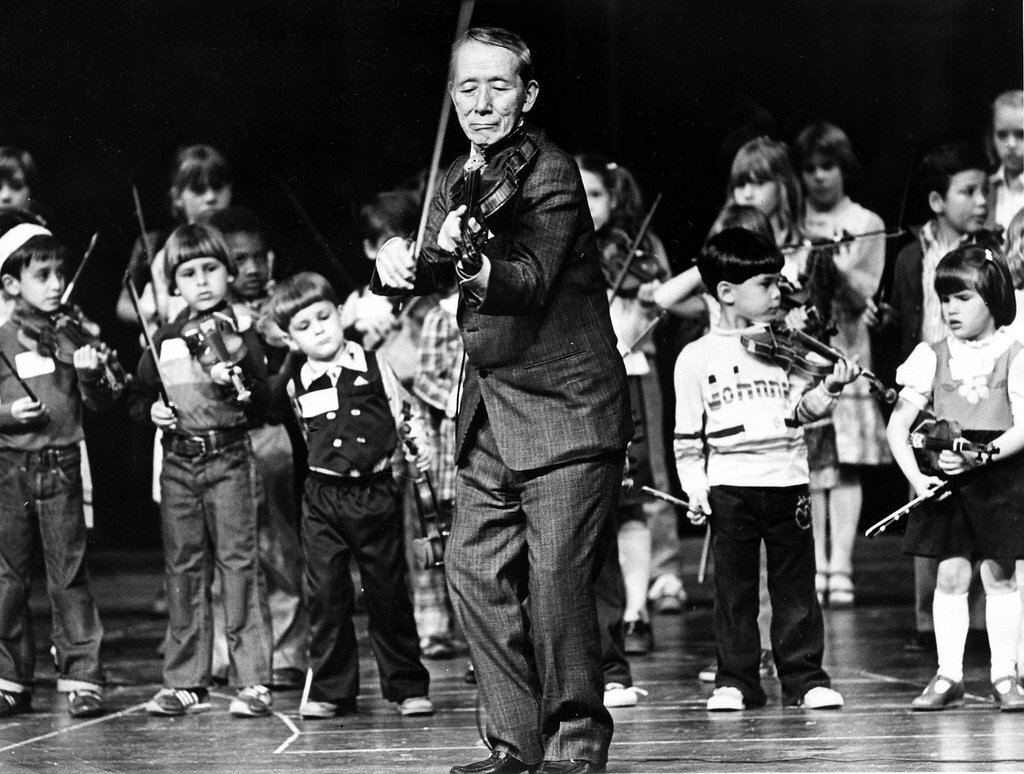
The Suzuki Philosophy
Dr. Shinichi Suzuki (1898-1998) was a 20th century Japanese pedagogue who modeled his music education method after the way young children inherently learn their native language.
The main tenets of the Suzuki philosophy of education are:
Every Child Can
Just as every child learns their native language, every child can learn to play a musical instrument. Dr. Suzuki did not believe in inborn talent.
Listening
A baby will not learn to speak without first hearing the speech of others. In order to develop their musical ear, Suzuki students spend time listening to professional recordings of the pieces they will play.
Gradual Steps
Suzuki teachers break each skill into its smallest component parts, so even young children are able to learn. Each instrument has its own graded repertoire, allowing students to progress seamlessly through real pieces.
Practice
When a baby learns a new word, they must repeat it many times before it is mastered; so it is with learning a new skill on an instrument. As Dr. Suzuki said, “Ability is knowledge plus 10,000 times.”
Review
We do not discard a new vocabulary word after we have mastered it. When a Suzuki student learns a musical piece, they frequently circle back to explore it in more sophisticated ways. Review is often accomplished in group class.
Shared Experiences
In group classes, students have an opportunity for social interaction with other young musicians at the same level. Children work on performance techniques in a familiar environment built on trust. The confidence they gain here serves them well in more public performances.
Musical Reading Readiness
A child does not learn to read at the same time they learn how to speak. Likewise, Suzuki students learn to play by ear before they start to read music. Suzuki School of Newton students hone their music reading skills in a separate Musicianship class.
The Learning Triangle
A learning triangle is formed through cooperation between student, teacher, and parent. Parents attend all classes, and the three roles are equally important for learning.
Nurtured by Love
When children learn music in a loving, supportive, and positive environment, they develop the ability to overcome the next challenge that life sends their way.
